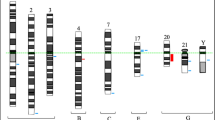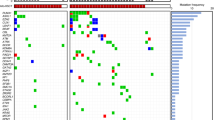Abstract
Microsatellite instability (MSI) has been reported to occur in various types of malignant neoplasms. We performed a polymerase-chain-reaction-based assay for MSI between the initial and the most recently available (“latest”) samples from 23 patients with myelodysplastic syndrome (MDS). Of these patients, 15 were informative at more than three microsatellite loci. Seven patients showed an increase in leukemic cells while 8 patients did not during the interval between the two analyses. Only 1 of the patients, who had refractory anemia with excess blasts, which changed to acute myelogenous leukemia, showed microsatellite alteration at the analysis times. Among all 23 patients, two alterations were detected in the 42 informative paired samples that showed an increase in leukemic cells (4.8%), while none was detected in the 59 paired samples without such an increase. In total, therefore only two alterations were detected among 101 informative paired samples (2%). This indicates that MSI is rare in the clinical course of MDS irrespective of disease status, and is consequently not a critical genetic event for disease progression in most MDS patients.
Similar content being viewed by others
Author information
Authors and Affiliations
Consortia
Additional information
Received: 26 November 1997 / Accepted: 15 January 1998
Rights and permissions
About this article
Cite this article
Harada, S., Komatsu, H., Seto, M. et al. Microsatellite instability is rare in the clinical course of myelodysplastic syndrome studied with DNA from fresh and paraffin-embedded tissues. J Cancer Res Clin Oncol 124, 231–235 (1998). https://doi.org/10.1007/s004320050159
Issue Date:
DOI: https://doi.org/10.1007/s004320050159




